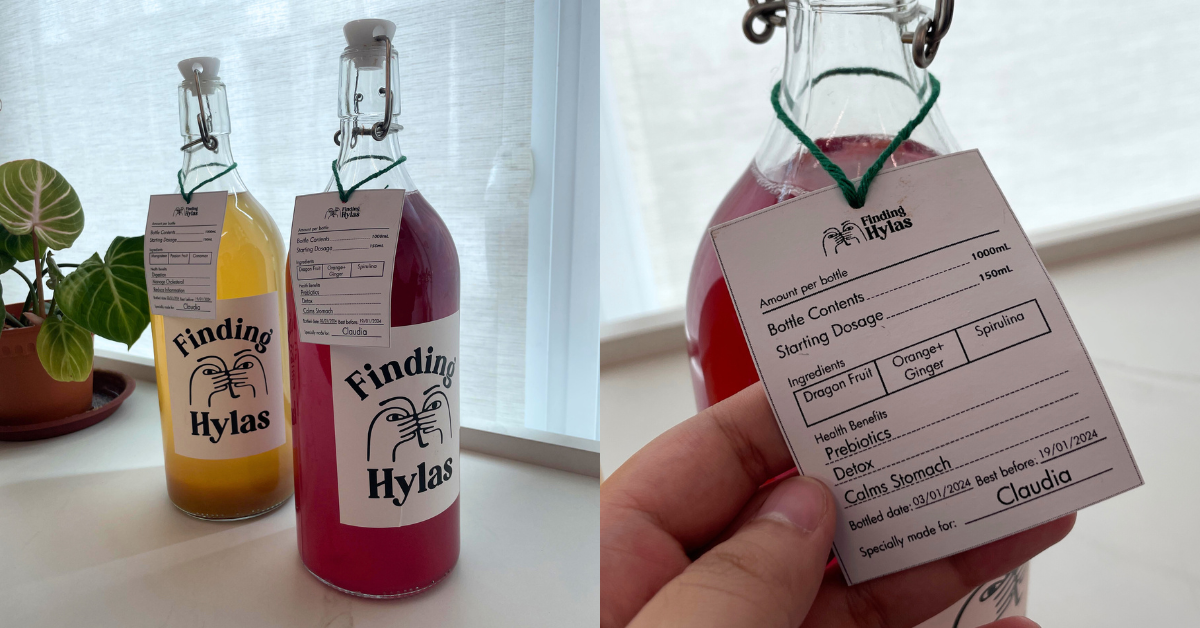The new year is upon us, which can only mean one thing. The time has come again for us to whip out the crystal ball and peer into the future…
Or, we wish we could! Rather than conjure up general predictions though, here are seven industry trends that we believe will be seeing significant growth in 2023.
1. Deep learning and AI tech will be used to complement creative industries

AI and deep learning technology are likely to become popular trends in Malaysia’s business sectors next year. One reason for this is the growing recognition of the potential of these technologies to drive innovation and improve efficiency in a range of industries.
For example, AI and deep learning technology can be used in healthcare to improve patient diagnosis and treatment, in finance to enhance risk assessment and fraud detection, and in manufacturing to optimise production processes.
Malaysia is also home to a growing number of startups and research institutions focused on developing and applying AI technology, and the government has also shown strong support for the growth of these sectors through initiatives such as the Malaysia Digital Economy Corporation (MDEC).
The increasing adoption of AI and deep learning technology by businesses in other countries is likely to drive demand for these technologies in Malaysia as well.
A demand that could even replace us.
After all, we actually prompted an AI programme, ChatGPT, to write the last five paragraphs you just read. Could you tell?

Aside from the healthcare, fintech, and manufacturing sectors that ChatGPT pinpointed, AI tech might also be applied to creative industries, seeing as AI-generated images have gone viral recently.
And though we wrote in 2021 that robot influencers won’t be taking over our social media locally just yet, AI being implemented in this industry might be a game-changer.
The Malaysian government does have plans for incorporating AI into the economy as well, through the Malaysia Artificial Intelligence Roadmap 2021-2025 (AI-Rmap) and the Malaysian Digital Economy Blueprint (MDEB), which are led by the MyDIGITAL Corporation and the Economic Planning Unit.
2. Locally-made meat and dairy alternatives will cater to our appetites

With local startups like Phuture, Etblisse OYA, and Snappea, it’s safe to say that Malaysia’s plant-based meat and dairy alternative sector has been growing. Even popular dairy brand Farm Fresh has produced its own line of plant-based milk.
Just this year, Malaysian jackfruit plant-based meat brand Nanka also raised an undisclosed funding amount from US-based Leet Capital.
Meanwhile, Phuture has been collaborating with brands such as KyoChon, Grand Hyatt, and CU Malaysia all throughout the year.
At the same time, vegetarian food delivery platform Zesty Clickz rebranded to Veg Hub, and now also delivers groceries. This gives plant-based products a new distribution channel.
Other than plant-based meats, though, there’s also another meat alternative that can be explored in the market—insects. And perhaps not for humans, but for animals.
There are already a few such startups in Malaysia. For instance, biotech company Life Origin, which recently announced that it will be having an equity crowdfunding round via pitchIN. The startup produces black soldier fly larvae as pet feed and supplies feed mills around the world.
Whether it be plant-based or insect-based, though, we’re predicting to see more Malaysian entrepreneurs delving into the meat and dairy alternative sector next year.
3. Electric car and bike ownership will be accelerated

Electric vehicles are certainly not a rarity in Malaysia anymore, but they’re still not as popular of an option here yet.
According to The Star, though, the number of businesses that have announced plans to get involved in the sector has been growing.
Furthermore, Malaysia is also reportedly on track to meet its target of installing up to 10,000 public charging stations for EVs in the country by 2025 under the Low Carbon Mobility Blueprint 2021-2030.
Malaysia’s National Energy Policy 2022-2040 also includes the Low Carbon Nation Aspiration 2040, which outlines that Malaysia’s electric vehicle market share will grow to 38%.
Some startups are already attempting to jump on this trend, with Malaysian EV charging platform ChargeSini seeking US$1.5 million in funding.

Electric motorbikes have also become more commonplace in Malaysia with the presence of Eclimo, and more recently, Ni Hsin EV Tech Sdn Bhd‘s TAILG EBIXON electric bikes.
Even if EV penetration into the consumer market will be slow, we think that more businesses might actually look into adopting EVs for their operations. Thus, we might see more B2B partnerships crop up in 2023, paving the way for more widespread use of EVs across the nation.
4. Esports and gaming will be taken to the next level through other industries

Despite the lowered budget allocation for esports this year, many Malaysian esports athletes had made news this year for their successes, from sweeping the Commonwealth Esports Championships to Malaysian Dota 2 player NothingToSay winning a share of about RM21.6 million at The International 10.
Dubai-based esports and gaming organisation Galaxy Racer has also said it plans to establish its APAC headquarters in Malaysia, and is set to invest RM42 million (US$10 million) in the country within the next five years.
The upcoming Malaysian office will reportedly focus on six business verticals—content, esports teams, content creators, esports and gaming events, merchandising, a music label, and an animation studio.
We’ve also heard of Hatten Land’s plan to open a MLBB-themed esports hotel in Melaka.

It’s frankly quite amazing to see how far esports has come, becoming a legit career path for many, and we have no doubt that Malaysian entrepreneurs across different sectors will be looking to be more involved in the space somehow.
5. The gig economy sector will see increased efforts to grow its sustainability

In 2022, the local gig economy has seen quite a bit of progress.
For instance, during the initial tabling of Budget 2023, it was announced that government will bear 80% of Socso contributions for gig economy workers.
In March, GoGet partnered with Employees Provident Fund (EPF) to launch an integrated savings programme for its gig workers.
As the gig economy provides a more sustainable career path for people, there’s a likelihood that entrepreneurs will take note of further gaps and proceed to address them.
Delivery riders are already commonplace in Malaysia, but perhaps we might see more platforms dedicated to freelancers, such as Malaysia’s own version of Fiverr and Upwork.
There might also be further innovations within the gig economy itself, all aimed at enabling people to make a proper living by going freelance or doing gig work. An example of a local site that’s already contributing to these efforts is Gigple.
6. Social commerce will become a preferred alternative to regular online shopping

Plain old online shopping is getting rather, well, old. Reading about its description and looking at pictures of a product is sometimes no longer convincing enough for us to make the purchase.
It seems that we’re now more enticed when we can see someone with a significant following showing off in a livestream while throwing discounts and promos in our faces. This is known as social commerce.
Social commerce can be boiled down to the concept of selling products via social media, and it can manifest in many different ways. One thing’s for sure though, it’s definitely different from ecommerce.
We’ve seen local social commerce platforms try and take off in 2021, with a Malaysian startup even planning to launch as a fully social commerce site, but we can no longer find any trace of it online.
One reason why it’s a difficult space to disrupt might be because Lazada, Shopee, and TikTok are already dominating the sector.
But we know that Malaysian entrepreneurs are excited by a challenge, so we’re expecting to see some players try and take on this space in the coming year.
7. Agritech will see a renewed appreciation and newer, younger entrants

Agritech has long been quite an active sector in Malaysia, with all the vertical farming and hydroponic solutions in the market.
According to the Tracxn Geo Annual Report: SEA Tech 2022, Food & Agriculture Tech is the best performing sector this year-to-date with US$1.33 billion in funding in an increase of 68% from the same period last year.
With this cash injection, this might mean we will see a lot of new innovations in agritech, as well as new startups who want to join in on the fun.
Other than new names in the agritech scene, we also anticipate to see more applications of blockchain technology in agriculture in 2023.
Will a unicorn rear its horn?
This year, we haven’t really seen the rise of a unicorn, but there is definitely potential. ScaleUp Malaysia and Proficeo had earlier joined forces to launch 100 Soonicorns, a programme designed to groom the next unicorns of Malaysia.
Will those unicorns be involved with any of the industries and business trends we mentioned? Only time will tell.
So, just like with our predictions for 2022, we’ll check back in after a year on whether these predictions came to be. Crossing our fingers that our predictions will hit the bullseye because we have to make our Asian parents proud.
- Read more about Malaysian startups we’ve written on here.
Featured Image Credit: Nanka / Vulcan Post









